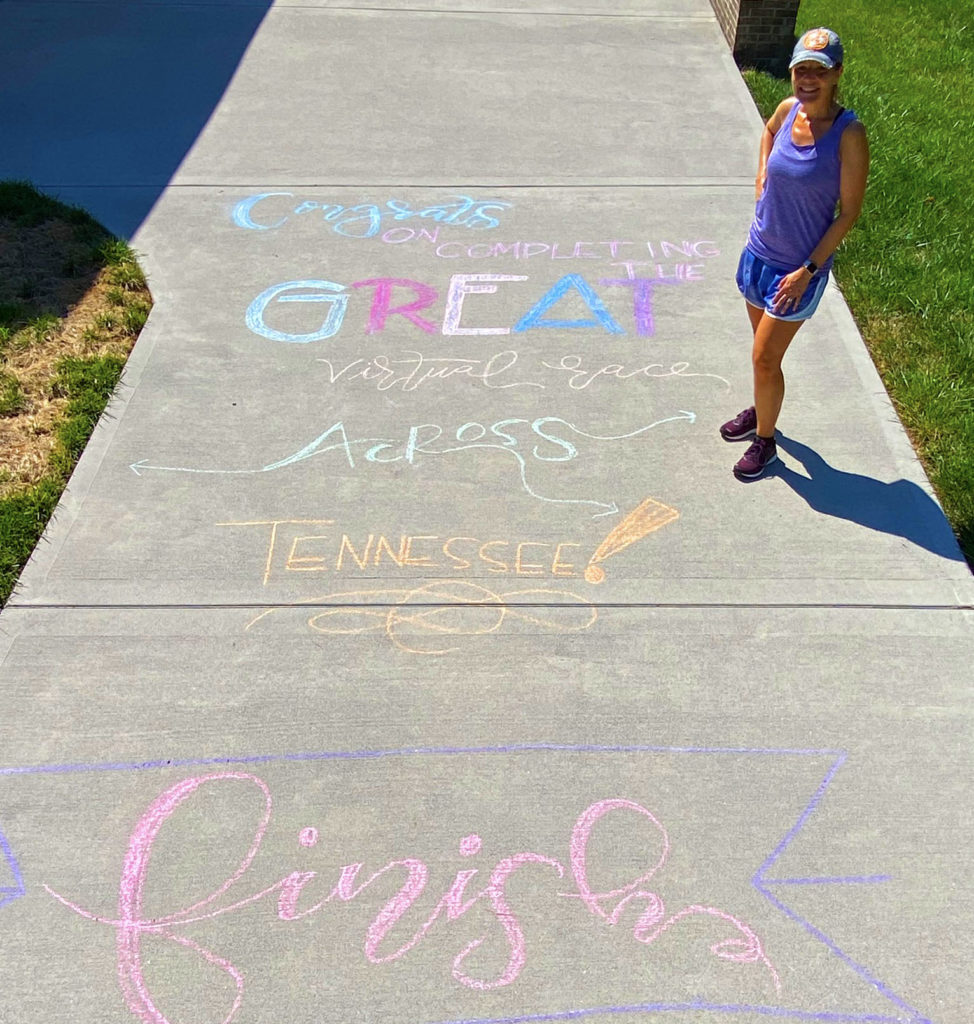
Educators, students, parents — we made it. We are finally at the finish line of a long school year full of unexpected twists, turns, highs, and lows. Last summer, I prepared for the challenge of this school year while completing a 1,000-km race across Tennessee. The year ahead felt daunting, but educators proved themselves as resilient and determined.
As I begin this summer’s race, the lessons learned from the past year are clear. Sometimes the biggest challenges lead to the greatest benefits, and when we shift our perspective to find the benefits, we see this year has been a remarkable success in education.
We listened even more to teachers, parents, and students. Effective school routines and instruction come from listening to students and educators. At multiple times through the year, our school used a survey to gather feedback from staff and students. Teachers provided feedback on technology successes such as student organization and communication. They also relayed feedback on next-steps needs for future teacher training and technology software.
Through the survey, teachers anecdotally reported that school-provided technology made learning accessible to all and that students were better prepared as 21st-century learners. More than three-quarters of students reported that technology made it easier to communicate with teachers, provided high-interest activities (such as gamified learning), helped them to keep track of assignments, and helped them to stay organized — including when absent.
Additionally, more than half of students reported they enjoyed using technology for interactives, videos, storing work on shared drives, and having choice in their submission type (upload, picture, video, audio, etc.). Just like good classroom instruction involves listening, this exceptional and unusual school year required listening to staff and students. This allowed us to adjust support for teachers this year and create responsive plans for next year that considered staff and student feedback.
We grew as innovators. Educators found ways to grow and improve our educational practice through technology. While some glitches and inconveniences still arose, educators were flexible and eager to try new teaching strategies. As the demands of teaching in a pandemic grew, we needed to experiment and adopt new strategies that fit our current teaching models. Plus, these strategies needed to maximize student interest while maintaining accessibility for all learners. Focusing on student engagement, using 21st-century skills, and problem solving all became forefront goals to meet the demands of this school year.
We focused on what was most important. We learned to remove the unnecessary and focus on the best practices with explicitly aligned instruction to make each learning moment count. Alterations were made in content delivery, meeting formats, and student work to the most efficient practices to address multiple standards. Parent meetings became virtual, allowing parents to often remain at work or meet other commitments. Assigned work required additional steps to link and assign, so it became imperative to choose the most effective instruction and reduce other assignments when possible. The complexity of real-world learning landed in our classrooms and gave us a moment to consider what was most important in teaching.
Each school year has hardships, but I hope this past year can eventually shift from one of anxiety and angst to one of innovation and success in adversity. When I think of last summer, I shifted my frame from pandemic concern to remembering how I marked the year by racing 1,000 km across the state — a goal that was beneficial to me mentally and physically. As we reach this school year’s finish line, I suggest you stop and look back from another angle. I think you will find more success than you first imagined.
Cathy Ginel is an eighth-grade science teacher at Farragut Middle School in Knox County. She is a former member of Governor Haslam’s Teacher Cabinet, an inaugural class member of SCORE’s Tennessee Educator Fellowship, and is currently pursuing her Ed.D. at the University of Virginia. Find her on Twitter as @CathyGinel.
More educator voices:
- Lessons From My First Month Of Virtual And In-Person Teaching
- My Journey To Increase Educator Diversity
- Moving The Learning Forward In Trousdale County
- Reflections On The Rewards Of Teaching
- The Missing Ingredient In Educator Preparation Programs
- Fellowship Helps Educators Find Their Voice, Make An Impact For Students
- What I’ve Learned About Reading Proficiency And Ending The Literacy Crisis
